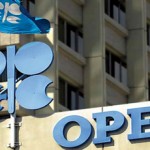Brent below $60: Prepare for ‘dramatic’ investment cuts

Brent crude prices fell below $60 per barrel for the first time since July 2009 on Tuesday, prompting analysts to warn of a “dramatic” cut in investment – which could hit future supply.
Brent for January delivery was trading at $59.15 on Tuesday morning and WTI crude was trading at $54.27, continuing a slide in global oil prices that began in June on the back of a glut in supply and lack of global demand.
Gloomy Chinese data published Tuesday showing a slump in factory activity did nothing to support prices and heightened expectations that demand for oil will continue to ebb.
Despite the price of benchmark Brent crude falling almost 50 percent since June, the Organization of Petroleum-Exporting countries (OPEC) decided not to cut production in November and there has been continued swell of supply from non-OPEC countries, including Russia and the U.S.
Now, there are growing concerns that the oil industry could be about slash spending on infrastructure projects. This could, in theory, lead to a shortage of supply in the future – despite that scenario seeming far off right now.
“We’re as surprised as anyone that the oil price has gone this low, but what you can say for absolute certain is that this level…is going to mean a dramatic cut in capital expenditure in the oil industry,” Max King, portfolio manager at Investec Asset Management, told CNBC Europe’s “Squawk Box” on Tuesday.
“(This) is going to mean that major economies will have to radically cut spending, whatever they say (to the contrary),” he said, adding that this could lead to a shortage of supply in four or five years’ time.
As differences within OPEC become more apparent, analysts at research firm Energy Aspects said that next year “cash-strapped producers” – such as Russia, Iraq and Venezuela – would be forced to “divert funds from upstream investment to plugging holes in government budgets, particularly on social spending.”
Despite this, Russian Energy Minister Alexander Novak insisted on Tuesday that the country would not cut production, and would maintain its 2014 oil output level into 2015, Reuters reported.
In their outlook for oil in 2015, Energy Aspects analysts Amrita Sen, Robert Campbell and Richard Mallinson, also warned that various militant groups were threatening to take permanents holds on oil-rich territories, such as Islamic State in Iraq and Syria, which could also hit investment.
“As well as disrupting current supplies this basically rules out investment in exploration and future capacity,” they wrote. “An extended period of underinvestment would translate into a gradual decay of productive capacity. While this is hardly on the market’s mind right now, the seeds of this can be sown in 2015, adding to the tightness in the coming years.”
Saudi stocks slide
The move lower in oil prices is certainly taking its toll on markets in the Middle East, with Saudi Arabia’s stock index down around 10 percent over the last week and Abu Dhabi’s main stock index close to 8 percent lower. Despite the fall, however, government officials have brushed off any potential threat to their economies.
An official from Abu Dhabi said on Tuesday that the fall in oil prices would not affect economic development projects in the country, while the chairman of Dubai’s fiscal committee said the country’s economy was doing well despite the difficult global environment.
While OPEC members like Saudi Arabia appear to be challenging U.S. shale oil producers to cut production by saying that they can withstand lower oil prices, not every member of the 12-country group has that luxury. The economies of countries like Venezuela are close to collapse, and Saudi’s neighbor Iran is keen for production cuts in an effort to support prices.
Barclays’ commodities research team said that, “something has to give: time structure; price; or production.”
They added that OPEC’s inaction would have “massive implications” for the health of the global economy.
“Given the speed and magnitude of the price move in the fourth quarter of 2014, we question OPEC’s willingness to stick to its mandate,” the Barclays team said. “Furthermore, the instability in several key oil export nations means that the risk of potential supply disruptions is still present and arguably more dangerous.”
Source: CNBC – Brent below $60: Prepare for ‘dramatic’ investment cuts





























